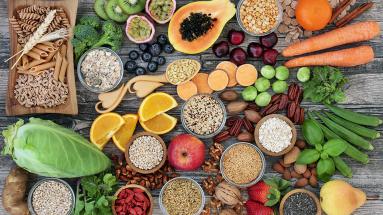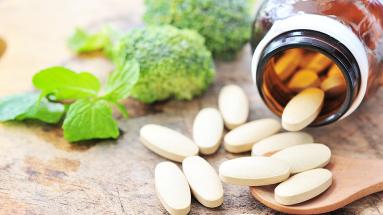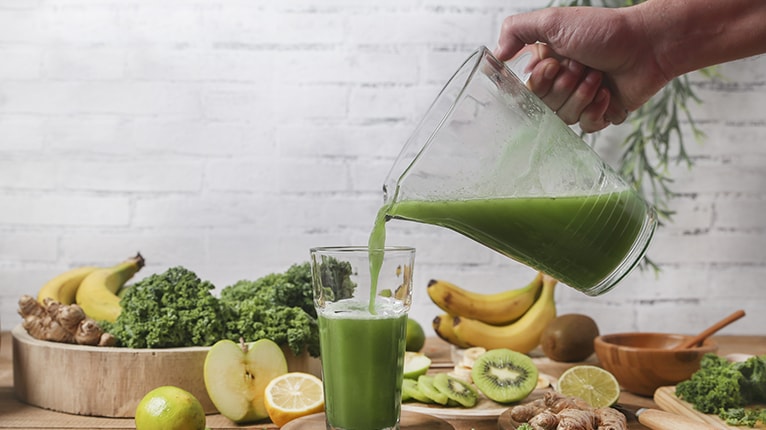Tired of feeling tired? How to adapt your nutrition and lifestyle when experiencing fatigue
Tired of feeling tired? How to adapt your nutrition and lifestyle when experiencing fatigue

What is fatigue?
Fatigue is one of the most common symptoms that people with cancer experience. Cancer-related fatigue can be more than just feeling tired or lacking energy. Some people describe it as feeling weak, listless, drained or “washed out.” Others may feel too tired to eat, walk to the bathroom or even use the TV remote. Fatigue can persist for some time and does not get better with rest or sleep.
Signs of cancer-related fatigue are:
- Becoming tired more easily during daily tasks
- Being less able to put effort into parts of your life
- Lack of focus
- Confusion
Cancer-related fatigue can be caused or made worse by different things. These include cancer or its treatment, anemia (low number of red blood cells), poor nutrition, dehydration, pain, sleeping problems, stress and depression. This article provides information about several ways to help you manage fatigue: using time-saving strategies to plan meals, drinking enough fluids and including some physical activity in your routine. Remember to inform your healthcare team if your fatigue gets worse. Always consult your healthcare team before making any changes to your diet or exercise habits.
1. Use time-saving strategies
Grocery delivery
When you are fatigued, do things that help you save your energy, such as using shortcuts to save time on daily and weekly activities. For instance, if a family member or friends have offered to help, you can ask them to grocery shop for you. You can also see if you can have groceries delivered. Ordering groceries online can help you fill your kitchen with food while saving your energy for other tasks.
Having access to already-prepared meals and snacks may make eating easier when you are feeling tired. Two options are purchasing ready-made meals and having meals prepared in advance.
Purchasing prepared dishes
Grocery stores offer prepared foods, such as entrées and side dishes, for individuals or families. These items can accompany healthy meals and recipes and help you to use a shortcut when needed. Choosing items that require minimal cooking can help you save energy.
Some prepared foods that can easily be made into a meal or fit into a healthy recipe include*:
- Fresh prepared meats, such as roasted or grilled turkey or chicken breast or a cooked salmon fillet
- Quiches
- Cooked vegetables and potato side dishes
- Salad kits
- Ready-to-eat grains
- Canned beans or fish
- Frozen microwavable vegetables or grains
- Boxed soups
*Prepared foods can have more sodium. Read the “Nutrition Facts” label to look for sodium content and make a healthy choice that’s right for you.
Preparing meals ahead of time
Prepare food ahead of time on days when you have more energy, or ask family or friends to prepare meals that can be frozen. On days when your energy level is low, you can reheat these frozen meals. Consider purchasing precut produce, such as washed and cut broccoli florets, to conserve energy. You can also wash, trim and cut up fresh fruits and vegetables before putting them away so they are ready to eat or cook. Be sure to use them within a few days since cutting fruits and vegetables will make them spoil more quickly.
Another way to plan ahead is to cook in bulk and portion the food into individual containers to refrigerate or freeze. If you plan to cook in batches, review the Food and Drug Administration (FDA) Food Safety for People With Cancer guidelines at foodsafety.gov/risk/cancer for information on safe food storage. Here are some ideas for meals that keep well in the pantry, refrigerator or freezer.
| FREEZER* |
|
| REFRIGERATOR |
|
| PANTRY |
|
*Make sure to follow the FDA Cold Storage Guidelines for recommended storage times. Label and date all meals on the storage container.
2. Eat regularly and drink enough fluids
Maintaining good nutrition and hydration may help with fatigue. It is important to eat a well-balanced diet that consists of protein, fiber, healthy fat, vitamins and minerals. Speak to your doctor and registered dietitian to discuss your individual nutritional needs.
Dehydration can sometimes make the feeling of fatigue worse. Speak with your medical team about your fluid needs to ensure you’re drinking enough. Most people need 8 to 12 cups of fluids per day to meet their fluid needs. It’s important to note that if you sweat during any of your daily activities, you may need more fluids. Good fluids and foods for hydration include water, juices, broth, fruit ices, popsicles and gelatin.
3. Get physical activity to help with fatigue
Physical activity can help with fatigue and trouble sleeping. If your doctor says it’s okay to exercise, include more physical activity in your daily routine. Start slowly and increase the amount of exercise, as you are able. Each person has a different comfort level; do what feels right for you. A short walk around the block may be enough physical activity for one person, whereas another person may be able to do 3 short walks spread out throughout the day. Scheduling time for physical activity may help you stay active during cancer treatment.
|
MY FATIGUE CHECKLIST |
|
¨ Plan your meals for the week and use that meal plan to create a weekly shopping list. |
|
¨ Make meals ahead of time and freeze food in individual or family-sized portions. |
|
¨ Use prepared foods to create healthy meals. |
|
¨ Include physical activity as you are able. Make sure to discuss your exercise plan with your medical team prior to starting any new physical activity or formal exercise. |
|
¨ Eat regularly scheduled meals and snacks and drink enough fluids. If you have any concerns, talk to a registered dietitian or healthcare provider about your nutrition and fluid needs. |
This article has general information and is not meant to replace nutritional or health guidance that is specific to any individual. Speak to your healthcare provider before making any changes to your diet or lifestyle. Consult with a registered dietitian if you are on a restricted or modified diet.

















